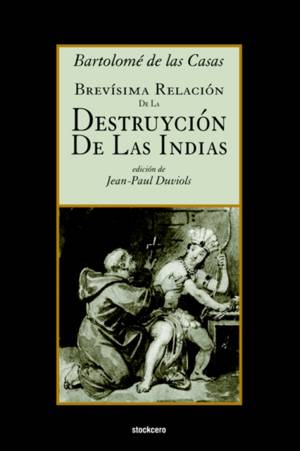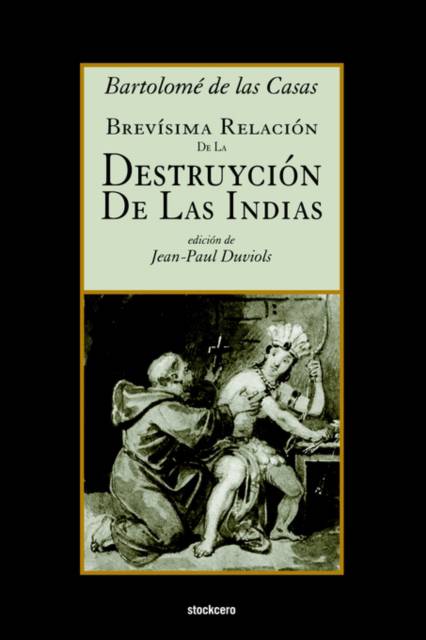
En raison d'une grêve chez bpost, votre commande pourrait être retardée. Vous avez besoin d’un livre rapidement ? Nos magasins vous accueillent à bras ouverts !
- Retrait gratuit dans votre magasin Club
- 7.000.000 titres dans notre catalogue
- Payer en toute sécurité
- Toujours un magasin près de chez vous
En raison de la grêve chez bpost, votre commande pourrait être retardée. Vous avez besoin d’un livre rapidement ? Nos magasins vous accueillent à bras ouverts !
- Retrait gratuit dans votre magasin Club
- 7.000.0000 titres dans notre catalogue
- Payer en toute sécurité
- Toujours un magasin près de chez vous
49,45 €
+ 98 points
Description
The painful and violent testimony of cruelties incurred by the Spanish conquistadors in the new world, concisely depicted by Bartolomé de Las Casas in his "Brevísima relación de la destruyción de las Indias", is both a terrible accusation and a warning addressed at Prince Phillip of Spain. By accumulating descriptions of atrocities, slaughters and tortures, while emphasizing the deep contrast between the goodness of the natives and the evil spirit of the conquistadors, the dominic priest prophesizes apocalyptic consequences to fall upon Spain as results of the horrors perpetrated by the colonizers, driven by greed and ambition instead of the desire to evangelize and protect the "new souls". With his revolutionary writing Las Casas intended to share his indignation facing such unjust and unmerciful behaviours, which he attributed to the "encomiendas" colonial regime, while advocating for a human and pacific evangelization. As he had recently done during the famous Valladolid Controversy, he tried to awaken consciences, reaffirming his humanism and universalism through his relentless mission as defender of the oppressed people. Spain's political and religious foes took advantage of this libel, integrating it into what would be known as the Spanish Conquest "black legend", so it's author became the victim of criticism and resent by Spaniards, who considered that he had contributed to the discredit of his own fatherland. This present edition includes all the engravings -annotated- of the famous Theodore de Bry (a protestant) edition. Jean-Paul DUVIOLS is academic emeritus of the University of Paris IV-Sorbonne. A specialist in the colonial period, travel literature and iconographic analysis, he has written numerous works on the European vision about America, from Christopher Columbus to Alexander von Humboldt.
Spécifications
Parties prenantes
- Auteur(s) :
- Editeur:
Contenu
- Nombre de pages :
- 188
- Langue:
- Espagnol
Caractéristiques
- EAN:
- 9789871136506
- Date de parution :
- 18-05-06
- Format:
- Livre broché
- Format numérique:
- Trade paperback (VS)
- Dimensions :
- 152 mm x 229 mm
- Poids :
- 281 g

Les avis
Nous publions uniquement les avis qui respectent les conditions requises. Consultez nos conditions pour les avis.






